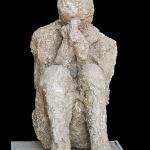This piece is intended as part of a series of ongoing and interlocking conversations on NFP, sexuality, and Humanae Vitae, that have been hosted here, as well as by Sick Pilgrim, and on Melinda Selmys’s column.
Responses to these conversations have been diverse. Many people have said “thank you for addressing this” and proceeded to share their own stories. Others, however, seem to regard our truth-telling about our experiences as some kind of attack – whether on the church, or on the NFP market (because, yes, the market is involved. The market is always involved). Still others see our stories as the whinging of the discontented who lack the moral fortitude to do right.
I’ve touched already on the psychological and theological misconceptions inherent in these responses. What I wish to address here is a spiritual misconception the roots of which lie far deeper, and which is seen not only in the negative responses to our stories, but in a larger misapprehension about good and evil themselves.
The problem is that people think that suffering is in some way a good, or capable of being a good.
This is false. Suffering is always by its nature evil, a privation of a due good. The experience of suffering is the experience of encounter with evil. This is why in our traditional mythological depictions of heaven and hell, hell is always depicted as a “place” of terrible torture. This is why it is always morally wrong to inflict suffering on another, unless the principle of double effect is sufficiently at work – in the case, for instance, of a doctor administering painful chemo drugs to a cancer patient. The suffering is not the intended outcome. Healing is. Similarly, in working out, there may be periods of pain or discomfort, but pain and discomfort are not the intended end – and, often, too much pain or discomfort is indicative that something is being done, objectively, incorrectly. “Embrace the pain” is not a great way to pursue fitness, physically or spiritually.
One reason we latch onto spiritual masochism is that there’s a certain fear of pleasure built into the western tradition of philosophical thought. And while one is right to avoid the error of positing physical pleasure as an ultimate good, the reaction to this which views physical pleasure as dangerous is problematic.
But another reason we have latched on to this spiritual masochism may be to a misunderstanding of the centrality of the cross in the Christian life. The cross is a sign of ultimate love not because suffering itself is intrinsic to love, or a good in itself, or even necessary. The cross is what happens when perfect love comes into the world, and is rejected. It is a reminder that grace triumphs over suffering, and that the divine, rather than turning away from the flesh-and-bone pain of humanity, entered into it, and bore it with us.
Suffering is evil. It is a condition of the fall. In heaven there will be perfect love with no suffering, because suffering has no place in perfection. Yes, grace means that good can come out of suffering, but that is part of the divinely comedic narrative of salvation, and does not mean that suffering somehow becomes good, or a good, per se.
The failure to understand the nature of suffering means that one fails in spiritual discernment when looking at painful situations. A good spiritual director should be able to parse out whether the suffering experienced by a person or persons is such that yields genuine good – as in, the chemo drugs – or whether it is purely evil – as in, cancer itself.
When a condition in a marriage is bringing about suffering, it is possible that this suffering can lead to good, but it is also possible that this suffering is an indication that something is objectively amiss. Telling people simply to embrace their sufferings, without making this distinction, can lead to severe spiritual abuse.
image credit: pixabay.com/en/suffering-fear-helplessness-pain-2417234/













